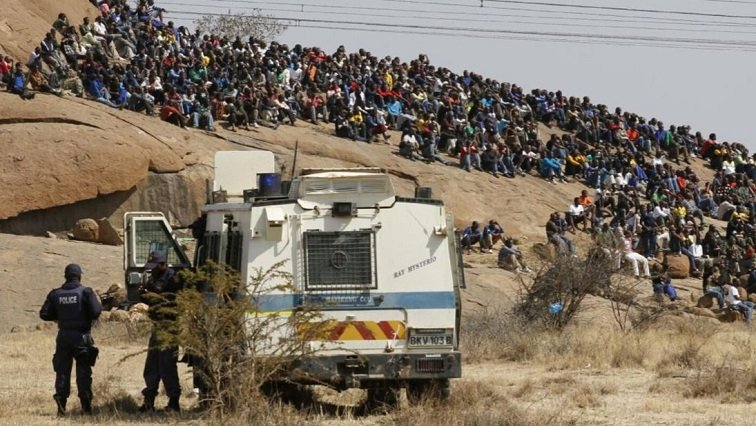‘Marikana massacre a symptom of deeper fractures in our society’ – SABC News

Sibanye Stillwater CEO designate, Richard Stewart, says the tragedy that unfolded in Marikana, outside Rustenburg in the North West in 2012, was not just a moment of rapture but a symptom of deeper fractures in society.
Speaking during the mining company’s 6th Annual Marikana Commemoration Lecture, Stewart stressed that engagements around the tragedy ought to recognise and acknowledge the wrongdoings of the past and the roles played by all stakeholders.
Stewart is expected to officially take over the reigns of CEO after Neal Froneman’s tenure expires at the end of the year.
Sebolai Liau, sone of Janeveke Raphael Liau, says, “I have lost a father who was a breadwinner. At the time we lost him, I was just 14 years. I had three other siblings after me, the youngest was four. Then when that happened, I had to step up and let go of my teenage life and be sort of a parent to my siblings.”
Mandla Yawa, brother of Cebisile Yawa, says, “I couldn’t know where my brother was working. The only thing that I knew was my brother was working for mines in Gauteng up until the incident or tragedy happened. My brother’s name is Cebisile Yawa.”
These are the heart-wrenching recollections of affected families, 13 years after the infamous Marikana killings.
While the Marikana Commission of Inquiry sought to investigate the deaths of all 44 people killed during the wildcat strike in August 2012, many questions remain unanswered and little consequence followed.
Marikana Massacre | Thabiso Moss updates on programme
Judge Ian Farlam, head of the Marikana Commission of Inquiry, says many of the commission’s recommendations were never implemented.
“When Mr Zuma went to prison and there were riots and about 200 people died, and the police did nothing … when they were questioned about that, they admitted they did nothing and they said nothing because they didn’t want another Marikana. That was something that made me very angry because we went through a lot of trouble to ask the government to appoint a panel of experts which they did, to investigate modern public order policing practice … and they produced an excellent report, hundreds of pages, an enormous amount of practical information, but its wasn’t implemented,” says Judge Farlam.
According to Advocate Geoff Budlender, Senior Evidence Leader at the Marikana Commission of Inquiry, they would have benefited from understanding the reasons behind the labour unrest better.
“Thirteen years later, I keep asking myself, what was it about the working and living conditions of rock drill operators that led them to believe they were effectively at war with their employer, and law enforcement authorities. We should have gone underground and got at least some sense of the conditions and operations there. We should have asked what realistic prospects the rock drill operators did have of ever escaping from this life. And second, the need to recognise that people who occupy or use land, including communal land, have rights that are protected under the constitution,” says Budlender.
However, the incumbent Sibanye Stillwater CEO designate, Richard Steward, believes some notable lessons were gained from the tragedy.
“Marikana was not just a moment of rapture; it was a symptom of deeper fracture in our society. This is why Sibanye Stillwater embarked on a sincere endeavour through the Letsema Engagement Process to understand the hardship faced by Marikana communities. We need to understand and embrace that communities themselves are defined by multiple stakeholders, all of whom have legitimacy. Part of any discussion needs to recognise and acknowledge the wrongdoings of the past and the roles we have all played,” says Steward.
Sibanye says headway has been made in their engagements with stakeholders, including the Marikana community, unions and government, to erect a memorial at the infamous koppie and declare Wonderkop a heritage site.
